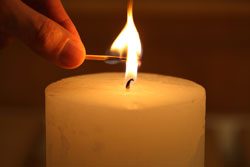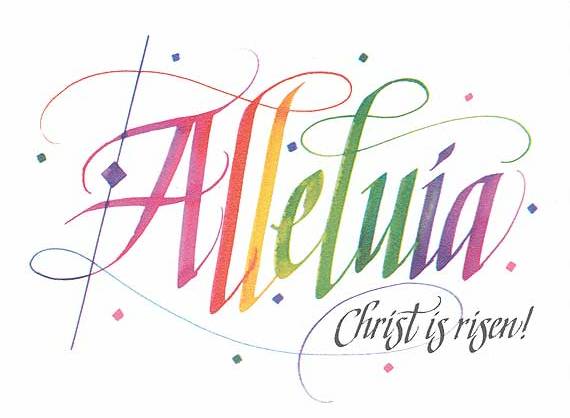Some years back I was changing jobs. In anticipation, I went to visit the city I was moving my family to in a few weeks, to look for a house. A new colleague was kind enough to invite me to stay with her family while I was there. One evening, when my colleague was out for an event, I was at home with her husband. As a good houseguest, especially with a spouse who I barely knew, I decided to lay low—let him do his work in his home office, find a quiet out-of-the-way place for myself, open my computer and get my own work done. We spoke for a bit about what we'd done during our respective days, were pleasant enough, enjoyed our chat, and went off to our spaces.
Then the power went off! Whoops!
No word about when it would come back on. No place to escape in the house.
We searched for candles together, chuckling about how unprepared he was for such an event and how unprepared I would have been were we at my house. How we take electricity for granted, so much that we don't even prepare for power outages! We just don't expect them! We found enough candles to illuminate the living room coffee table, and the chairs around it—creating a little zone of warm and welcoming light in their big old, now dark, house. Without opening the refrigerator, we found enough snacks with a flashlight in hand to prepare what felt like a spontaneous feast. We found enough time to forget what we didn't have in front of us (screens, tasks, or more) and to discover what we did (a new friend neither of us knew very well). And we sat and talked, with a kind of intimacy and honesty and openness to an "other" that would never have happened in a dwelling full of illuminated distractions. We talked for a couple of hours or more, with no care for the clock.
And then the lights came back on. We chuckled again, and decided we were both kinda sad that the lights were back on.
I'm sure there were folks on that street for whom that power outage caused genuine harm. I don't advocate cut offs. But for us, that night, I remember those hours as a sweet gift, from an inconvenience to a blessing. And it's a good memory.
So, here's a suggestion: In whatever ways you can, make such moments in Lent. Unplug. Create space. Open yourselves to an "other." Make a feast out of snacks. Learn to pray. Rediscover some of the arts we've lost, to texture your life in new ways. I'll try too, if I can just find the "candles."













